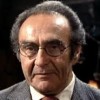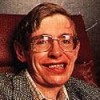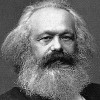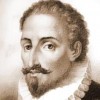Everywhere the human soul stands between a hemisphere of light and another of darkness on the confines of two everlasting hostile empires, — Necessity and Free Will.
Thomas Carlyle (1795-1881) Scottish essayist and historian
Essay (1832-08), “Goethe’s Works,” Foreign Quarterly Review, No. 19, Art. 1
(Source)
A review of Goethes Werke. Vollständige Ausgabe letzer Hand [Goethe's Works. Completed, Final Edition (1827-1830). Reprinted in Carlyle, Critical and Miscellaneous Essays (1845).
Quotations about:
free will
Note not all quotations have been tagged, so Search may find additional quotes on this topic.
Blame not this ball, impelled by bat’s hard blows,
That now to right and now to left it goes,
That One who wields the bat and smites the strokes
He knows what drives thee, yea He knows, He knows.Omar Khayyám (1048-1123) Persian poet, mathematician, philosopher, astronomer [عمر خیام]
Rubáiyát [رباعیات] [tr. Whinfield (1882), # 204]
(Source)
This metaphor of life as a polo game appears in some translations of the Rubaiyat (particularly FitzGerald), but not in the Bodleian manuscript.
Alternate translations:The Ball no Question makes of Ayes and Noes,
But Right or Left as strikes the Player goes;
And He that toss'd Thee down into the Field,
He knows about it all -- He knows -- HE knows!
[tr. FitzGerald, 1st ed. (1859), # 50]The Ball no Question makes of Ayes and Noes,
But Right or Left as strikes the Player goes;
And He that toss'd you down into the Field,
He knows about it all -- HE knows -- HE knows!
[tr. FitzGerald, 2nd ed. (1868), # 75; 3rd ed. (1872), 4th ed. (1879), 5th ed. (1889 ed.), # 70]Man, like a ball, hither and thither goes,
As fate's resistless bat directs the blows;
But He, who gives thee up to this rude sport,
He knows what drives thee, yea, He knows, He knows!
[tr. Whinfield (1883), # 401]Oh thou who art driven like a ball, by the bat of
Fate, go to the right or left -- drink wine and say
nothing, for that One who flung thee into the run
and search (mêlée) he knows, he knows, he knows, he -- .
[tr. Garner (1895 ms)]O thou who art gone to the club of fate like a ball!
Go to the left and to the right; but say nothing;
For He that threw thee down amidst the galloping,
He knows, and He knows, and He knows, and He --
[tr. Rodwell (1931) # 50/70]Poor ball, struck by Fate's heavy polo-mallet,
Running whichever way it drives you, numbed
Of sense, though He who set you on your course,
He knows, He knows, He knows.
[tr. Graves & Ali-Shah (1967), # 74]Whirling like a ball before the mallet of Fate, go running to right and left, and say nothing; for he that hurled thee into the chase, He knows, and He knows, and He knows!
[tr. Bowen (1976), # 43]Do not despair because to left and right
Fate drives you onward with his ballet-blows,
For He who flung you out into the fray,
He knows the game's technique -- He knows, He knows.
[tr. Bowen (1976), # 43]In the cosmic game of polo you are the ball
The mallet’s left and right becomes your call
He who causes your movements, your rise and fall
He is the one, the only one, who knows it all.
[tr. Shahriari (1998), literal]In the cosmic there is a flow
To which you must submit and bow
And though you act in this show
And seem to move to and fro
The plot you’ll never get to know
The only way you get to grow
Align yourself with this flow.
[tr. Shahriari (1998), figurative]
What we really mean by free will, of course, is the visualizing of alternatives and making a choice between them. In my view, which not everyone shares, the central problem of human consciousness depends on this ability to imagine.
Jacob Bronowski (1908-1974) Polish-English humanist and mathematician
The Origins of Knowledge and Imagination, ch. 1 “The Mind as an Instrument for Understanding” (1978)
(Source)
Of all creation’s bounty realized,
God’s greatest gift, the gift in which mankind
is most like Him, the gift by Him most prized,
is the freedom he bestowed upon the will.
All his intelligent creatures, and they alone,
were so endowed, and so endowed are still.[Lo maggior don che Dio per sua larghezza
fesse creando, e a la sua bontate
più conformato, e quel ch’e’ più apprezza,
fu de la volontà la libertate;
di che le creature intelligenti,
e tutte e sole, fuore e son dotate.]Dante Alighieri (1265-1321) Italian poet
The Divine Comedy [Divina Commedia], Book 3 “Paradiso,” Canto 5, l. 19ff (5.19-24) [Beatrice] (1320) [tr. Ciardi (1970)]
(Source)
(Source (Italian)). Alternate translations:That gem above all price by wifdom giv'n.
The most distinguish'd boon of fav'ring Heav'n,
The Stamp of Godhead on the human breast,
By him most priz'd, is Liberty of Choice;
A gift by none beneath the ambient Skies
But happy rationals alone possest.
[tr. Boyd (1802), st. 5]Supreme of gifts, which God creating gave
Of his free bounty, sign most evident
Of goodness, and in his account most priz’d,
Was liberty of will, the boon wherewith
All intellectual creatures, and them sole
He hath endow’d.
[tr. Cary (1814)]The greatest gift that God, creating, gave
Of his great bounty, and his goodness cost,
And that which he appreciated the most,
Was human liberty and our free will;
With which the creatures of intelligence,
And they alone, were dowered as with sense.
[tr. Bannerman (1850)]The greatest gift that in his largess God
Creating made, and unto his own goodness
Nearest conformed, and that which he doth prize
Most highly, is the freedom of the will,
Wherewith the creatures of intelligence
Both all and only were and are endowed.
[tr. Longfellow (1867)]The greatest gift which God of His bounty made in creating, and the most conformed to His goodness, and that which He most values, was the freedom of the will, wherewith the creatures that have intelligence all, and they only, were and are endowed.
[tr. Butler (1885)]The greatest gift which God's creating grace
Made in His largess, to His clemency
The most conformed, and prized as first in place
Was of the will the perfect liberty,
With which the creatures of intelligence
Were dowered, and are, and they alone.
[tr. Minchin (1885)]The greatest gift which God in His largess bestowed in creating, and the most conformed unto His goodness and that which He esteems the most, was the freedom of the will, with which all the creatures of intelligence, and they alone, were and are endowed.
[tr. Norton (1892)]The greatest gift God of his largess made at the creation, and the most conformed to his own excellence, and which he most prizeth,
was the will's liberty, wherewith creatures intelligent, both all and only, were and are endowed.
[tr. Wicksteed (1899)]The greatest gift that God in His bounty made in creation, the most conformable to His goodness and the one He accounts the most precious, was the freedom of the will, with which the creatures with intelligence, all and only these, were and are endowed.
[tr. Sinclair (1939)]Of all the gifts God in His bounty extreme
Made when creating, most conformable
To His own goodness, and in His esteem
Most precious, was the liberty of the will,
With which creatures that are intelligent
Were all endowed, they only, and are so still.
[tr. Binyon (1943)]The greatest gift of God’s largesse, when He
Created all, most prized by Him, and best,
As most akin to His own quality,
Was the will's freedom, crown of all the rest,
Whereof all creatures made intelligent,
They all, they only, were and are possessed.
[tr. Sayers/Reynolds (1962)]The greatest gift which God in His bounty
bestowed in creating, and to His own goodness
the most conformed, and that which He prizes the most,
was of the will the freedom,
with which the creatures that have intelligence,
they all and they alone, were and are endowed.
[tr. Singleton (1975)]The greatest gift which God in his open-handedness
Gave in creation, and the gift which most conformed
To his own excellence, and which he most values,
Was that of freedom of the will,
With which creatures created intelligent,
Each and all of them, were and are endowed.
[tr. Sisson (1981)]The greatest gift the magnanimity
of God, as He created, gave, the gift
most suited to His goodness, gift that He
most prizes, was the freedom of the will;
those beings that have intellect -- all these
and none but these -- received and do receive this gift.
[tr. Mandelbaum (1984)]The greatest gift that our bounteous Lord
bestowed as the Creator, in creating,
the gift He cherishes the most, the one
most like Himself, was freedom of the will,
All creatures with intelligence, and they
alone, were so endowed both then and now.
[tr. Musa (1984)]The greatest gift that ever in his bountifulness God gave in creating, and the most conformed to his goodness, the one that is most prized,
was the freedom of the will, with which the creatures with intelligence, all of them and only they, were and are endowed.
[tr. Durling (2011)]The greatest gift that God made at the Creation, out of his munificence, the one that most fitted his supreme goodness, and which he values most, is Free Will, with which intelligent creatures, all and sundry, were, and are, endowed.
[tr. Kline (2002)]The greatest gift that God, in spacious deed,
made, all-creating -- and most nearly formed
to His liberality, most prized by Him --
was liberty in actions of the will,
with which all creatures of intelligence --
and they alone -- both were and are endowed.
[tr. Kirkpatrick (2007)]The greatest gift that God in His largesse
gave to creation, the most attuned
to His goodness and that He accounts most dear,
was the freedom of the will:
all creatures possessed of intellect,
all of them and they alone, were and are so endowed.
[tr. Hollander/Hollander (2007)]The greatest gift that God, in infinite bounty,
Bestowed on His creation, and the quality
Most like His goodness, as well as what He prices,
Was freedom of will, granted only to creatures
Of intelligence -- exclusively for them,
No others thus endowed.
[tr. Raffel (2010)]
It may be that everything we do is determined by some grand unified theory. If that theory has determined that we shall die by hanging, then we shall not drown. But you would have to be awfully sure that you were destined for the gallows to put to sea in a small boat during a storm. I have noticed that even people who claim that everything is predestined and that we can do nothing to change it look before they cross the road. Maybe it’s just that those who don’t look don’t survive to tell the tale.
Stephen Hawking (1942-2018) English physicist, author
“Is Everything Determined?” lecture, Sigma Club Seminar, Cambridge University (1990-04)
(Source)
Reprinted in Black Holes and Baby Universes, and Other Essays, ch. 12 (1994). Hawking's thesis that the universe is actually deterministic, but too complex to be predictable, so acting as though free will exists is useful socially and, like fluid dynamics equations, satisfactory for most purposes.
People couldn’t become truly holy, he said, unless they also had the opportunity to be definitively wicked.
Terry Pratchett (1948-2015) English author
Good Omens, 2. “Eleven Years Ago” (1990) [with Neil Gaiman]
(Source)
All is in the hands of man. Therefore you should wash them often.
[Wszystko jest w rękach człowieka. Dlatego należy je często myć.]
Stanislaw Lec (1909-1966) Polish aphorist, poet, satirist
Unkempt Thoughts [Myśli nieuczesane] (1957) [tr. Gałązka (1962)]
(Source)
Just as most soldiers believe bullets will hit only others, not themselves, most citizens like to think that their own minds and thought processes are invulnerable. “Other people can be manipulated, but not me,” they declare. People like to think that their opinions, values and ideas are inviolate and totally self-regulated. They may admit grudgingly that they are influenced slightly by advertising. Beyond that, they want to preserve a myth in which other persons are weak-minded and easily influenced, but they are strong-minded.
Margaret Singer (1921-2003) American clinical psychologist and researcher
“The ‘Not Me’ Myth: Orwell and the Mind,” Idea (19 Jan 1996)
(Source)
For behind the unwillingness to judge lurks the suspicion that no one is a free agent, and hence the doubt that anyone is responsible or could be expected to answer for what he has done. The moment moral issues are raised, even in passing, he who raises them will be confronted with this frightful lack of self-confidence and hence of pride, and also with a kind of mock-modesty that in saying, Who am I to judge? actually means We’re all alike, equally bad, and those who try, or pretend that they try, to remain halfway decent are either saints or hypocrites, and in either case should leave us alone.
It is not murder which is forgiven but the killer, his person as it appears in circumstances and intentions. The trouble with the Nazi criminals was precisely that they renounced voluntarily all personal qualities, as if nobody were left to be either punished or forgiven. They protested time and again that they had never done anything out of their own initiative, that they had no intentions whatsoever, good or bad, and that they only obeyed orders.
To put it another way: the greatest evil perpetrated is the evil committed by nobodies, that is, by human beings who refuse to be persons.Hannah Arendt (1906-1975) German-American philosopher, political theorist
Lecture (1965-1966), “Some Questions of Moral Philosophy,” New School for Social Research, New York City
(Source)
This is from a series of lectures Arendt gave at the New School for Social Research in NYC (1965), and at the University of Chicago ("Basic Moral Propositions," 1966). These were reworked and collected under this title in Responsibility and Judgment, Part 1 "Responsibility" (2003).
Experts in ancient Greek culture say that people back then didn’t see their thoughts as belonging to them. When ancient Greeks had a thought, it occurred to them as a god or goddess giving an order. Apollo was telling them to be brave. Athena was telling them to fall in love.
Now people hear a commercial for sour cream potato chips and rush out to buy them, but now they call this free will.
At least the ancient Greeks were being honest.
Man is man because he is free to operate within the framework of his destiny. He is free to deliberate, to make decisions, and to choose between alternatives. He is distinguished from animals by his freedom to do evil or to do good and to walk the high road of beauty or tread the low road of ugly degeneracy.
There isn’t a way things should be. There’s just what happens, and what we do.
Terry Pratchett (1948-2015) English author
Discworld No. 32, A Hat Full of Sky [Miss Level] (2004)
(Source)
Science is as yet in its infancy, and we can foretell little of the future save that the thing that has not been is the thing that shall be; that no beliefs, no values, no institutions are safe. So far from being an isolated phenomenon the late war is only an example of the disruptive result that we may constantly expect from the progress of science. The future will be no primrose path. It will have its own problems. Some will be the secular problems of the past, giant flowers of evil blossoming at last to their own destruction. Others will be wholly new. Whether in the end man will survive his ascensions of power we cannot tell. But the problem is no new one. It is the old paradox of freedom re-enacted with mankind for actor and the earth for stage.
J.B.S. Haldane (1892-1964) English geneticist [John Burden Sanderson Haldane]
“Daedalus, or Science and the Future,” speech, Cambridge (24 Feb 1923)
(Source)
Therefore virtue also depends on ourselves. And so also does vice. For where we are free to act we are also free to refrain from acting, and where we are able to say No we are also able to say Yes; if therefore we are responsible for doing a thing when to do it is right, we are also responsible for not doing it when not to do it is wrong, and if we are responsible for rightly not doing a thing, we are also responsible for wrongly doing it. But if it is in our power to do and to refrain from doing right and wrong, and if, as we saw, being good or bad is doing right or wrong, it consequently depends on us whether we are virtuous or vicious.
Aristotle (384-322 BC) Greek philosopher
Nicomachean Ethics [Ἠθικὰ Νικομάχεια], Book 3, ch. 5 (3.5) / 1113b (c. 325 BC) [tr. Rackham (1934)]
(Source)
Source of the common summary, "What lies in our power to do, it lies in our power not to do." Alternate translations:Virtue is in our power. And so too is Vice: because wherever it is in our power to do it is also in our power to forbear doing, and vice versâ: therefore if the doing (being in a given case creditable) is in our power, so too is the forbearing (which is in the same case discreditable), and vice versâ. But if it is in our power to do and to forbear doing what is creditable or the contrary, and these respectively constitute the being good or bad, then the being good or vicious characters is in our power.
[tr. Chase (1847), ch. 7]Virtue is in our own power, and, by parity of reasoning, so is vice. For where it is in our power to do a thing, it is equally in our power to abstain from doing it; where refusal is in our power, assent is equally so. So that, if to do such or such a thing, which is noble, be in our power, to abstain from it, which is disgraceful, will be equally in our power; and ift0o abstain from doing such or such a thing, which is noble, be in our power, then to do it, which is disgraceful, will be equally in our power. And if, in a word, it be in our power to do what is noble and what is disgraceful, it is equally in our power not to do it. Or in other words, it is in our power to be good men or bad. It rests, then, with ourselves whether we are to be virtuous or vicious.
[tr. Williams (1869)]Virtue and vice are both alike in our own power; for where it is in our power to act, it is also in our power to refrain from acting, and where it is our power to refrain from acting, it is also in our power to act. Hence if it is in our power to act when action is noble, it will also be in our power to refrain from acting when inaction is shameful, and if it is our power to refrain from acting when inaction is noble, it will also be in our power to act when action is shameful. But if it is in our power to do, and likewise not to do, what is noble and shameful, and if so to act or not to act is as we have seen to be good or bad, it follows that it is in our power to be virtuous or vicious.
[tr. Welldon (1892), ch. 7]Therefore virtue depends upon ourselves: and vice likewise. For where it lies with us to do, it lies with us not to do. Where we can say no, we can say yes. If then the doing a deed, which is noble, lies with us, the not doing it, which is disgraceful, lies with us; and if the not doing, which is noble, lies with us, the doing, which is disgraceful, also lies with us. But if the doing and likewise the not doing of noble or base deeds lies with us, and if this is, as we found, identical with being good or bad, then it follows that it lies with us to be worthy or worthless men.
[tr. Peters (1893)]Therefore virtue also is in our own power, and so too vice. For where it is in our power to act it is also in our power not to act, and vice versa; so that, if to act, where this is noble, is in our power, not to act, which will be base, will also be in our power, and if not to act, where this is noble, is in our power, to act, which will be base, will also be in our power. Now if it is in our power to do noble or base acts, and likewise in our power not to do them, and this was what being good or bad meant, then it is in our power to be virtuous or vicious.
[tr. Ross (1908)]Virtue too is up to us, then, and similarly, vice. For where acting is up to us, so is not acting, and where saying "No" is up to us, so is saying "Yes." Hence if acting, when it is noble, is up to us, not acting, when it is shameful, will also be up to us. And if not acting, when it is noble, is up to us, acting, when it is shameful, will also be up to us. But if doing noble actions or doing shameful ones is up to us, and similarly, also not doing them (which is what being good people and being bad people consisted in), then being decent or base will be up to us.
[tr. Reeve (1948)]So virtue, too, is in our power, and also vice for a similar reason. For where it is in our power to act, it is also in our power not to act, and where it is in our power not to act, it is also in our power to act; so if to act, when it is noble, is in our power, then also not to act, which would then be disgraceful, would be in our power, and if not to act, when it is noble, is in our power, then also to act, which would then be disgraceful, would be in our power. If it is in our power, then, to do what is noble or disgraceful, and likewise not to do what is noble or disgraceful, and to act or not to act nobly or disgracefully, as stated earlier, is to be good or bad, then it is our power to be good or bad men.
[tr. Apostle (1975)]Therefore virtue lies in our power, and similarly so does vice; because where it is in our power to act, it is also in our power not to act, and where we can refuse we can also also comply. So if is in our power to do a thing when it is right, it will also be in our power not to do it when it is wrong; and if it is in our power not to do it when it is right, it will also be in our power to do it when it is wrong. And if it is in our power to do right and wrong, and similarly not to do them; and if, as we saw, doing right or wrong is the essence of being good or bad, it follows that it is in our power to be decent or worthless.
[tr. Thomson/Tredennick (1976)]Virtue, then, is in our power, and so is vice. Where it is in our power to act, it is also in our power not to act, and where saying "No" is in our power, so is saying "Yes" so that if it is in our power to act when it would be noble, it will also be in our power not to act when it would be shameful, and if it is in our power not to act when it would be noble, it will also be in our power to act when it would be shameful. Now if it is in our power to do noble and shameful actions, and the same goes for not doing them, and if, as we saw, being good and bad consists in this, then it is in our power to be good or bad.
[tr. Crisp (2000)]
Men make their own history, but they do not make it just as they please; they do not make it under circumstances chosen by themselves but under circumstances directly encountered, given and transmitted from the past. The tradition of all the dead generations weighs like a nightmare on the brains of the living.
Karl Marx (1818-1883) German philosopher, economist, sociologist, historian, journalist
The Eighteenth Brumaire of Louis Napoleon, ch. 1 (1852)
(Source)
HECUBA: Then no man on earth is truly free,
All are slaves of money or necessity.
Public opinion or fear of prosecution
forces each one, against his conscience,
to conform.ἙΚΆΒΗ:[φεῦ.
οὐκ ἔστι θνητῶν ὅστις ἔστ’ ἐλεύθερος·
ἢ χρημάτων γὰρ δοῦλός ἐστιν ἢ τύχης
ἢ πλῆθος αὐτὸν πόλεος ἢ νόμων γραφαὶ
εἴργουσι χρῆσθαι μὴ κατὰ γνώμην τρόποις.]Euripides (485?-406? BC) Greek tragic dramatist
Hecuba [Hekabe; Ἑκάβη], l. 864ff (c. 424 BC) [tr. Arrowsmith (1958)]
(Source)
When Agamemnon claims he cannot help her get revenge, as much as he'd like to if he were free to assist, because he has to pay attention to the sentiments of the Greek army.
(Source (Greek)). Alternate translations:Alas! there's no man free: for some are slaves
To gold, to fortune others, and the rest,
The multitude or written laws restrain
From acting as their better judgement dictates.
[tr. Wodhull (1809)]Alas! no mortal is there who is free. For either he is the slave of money or of fortune; or the populace of the city or the dictates of the law constrain him to adopt manners not accordant with his natural inclinations.
[tr. Edwards (1826)]Vain is the boast of liberty in man;
A slave to fortune, or a slave to wealth,
Or by the people or the laws restrain’d,
He dares not act the dictates of his will
[ed. Ramage (1864)]Ah, among mortals is there no man free!
To lucre or to fortune is he slave:
The city's rabble or the laws' impeachment
Constrains him into paths his soul abhors.
[tr. Way (Loeb) (1894)]Ah! there is not in the world a single man free; for he is a slave either to money or to fortune, or else the people in their thousands or the fear of public prosecution prevents him from following the dictates of his heart.
[tr. Coleridge (1938)]Show me the mortal man who's really free.
He's either a slave to money or to chance.
Or the pressure of the mob or legal code
curbs him from acting as his will dictates.
[tr. Harrison (2005)]Ah! But there’s no such thing as a free man! All men are slaves, Agamemnon! Slaves to money, to Fate, to the cries of the masses, to the written laws! They all stop him from doing what he wants.
[tr. Theodoridis (2007)]Then no one is free
in this world. He’s chained to money, or to luck, or to majority
opinion, or to law. Any way you look at it,
he’s still a slave.
[tr. Karden/Street (2011)]Alas!
there is not in the world a single man who is free;
for he is a slave either to money or to fortune,
or else the mob, or fear of law, prevents him
from following the dictates of his heart.
[ed. Yeroulanos (2016)]There is no mortal who is free. Either he is a slave to money or fortune, or the city’s mob or its laws make him live otherwise than he would wish.
[tr. @sentantiq (2016)]Ha!
No one who is mortal is free --
We are either the slave of money or chance;
Or the majority of people or the city’s laws
Keep us from living by our own judgment.
[tr. @sentantiq (2020)]
Practically, I am, nevertheless, compelled to act as if freedom of the will existed. If I wish to live in a civilized community, I must act as if man is a responsible being. I know that philosophically a murderer is not responsible for his crime; nevertheless, I must protect myself from unpleasant contacts. I may consider him guiltless, but I prefer not to take tea with him.
Albert Einstein (1879-1955) German-American physicist
“What Life Means to Einstein,” Interview with G. Viereck, Saturday Evening Post (26 Oct 1929)
(Source)
Edited as "I am compelled to act as if free will existed, because if I wish to live in a civilized society I must act responsibly. I know that philosophically a murderer is not responsible for his crime, but I prefer not to take tea with him," in Viereck, Glimpses of the Great (1930).
One of the annoying things about believing in free will and individual responsibility is the difficulty in finding someone to blame your troubles on. And when you do find someone, it’s remarkable how often their picture turns up on your driver’s license.






















